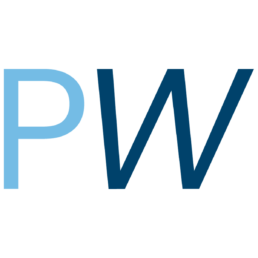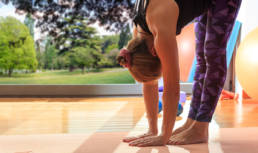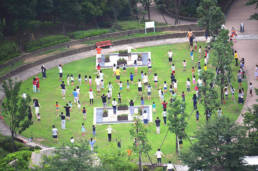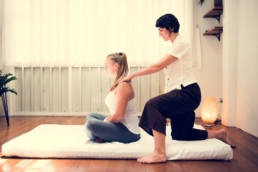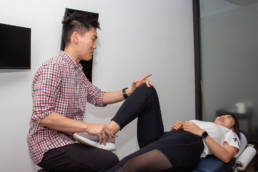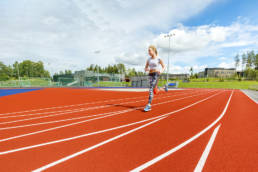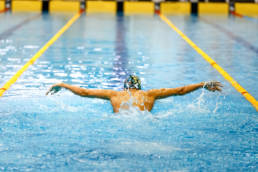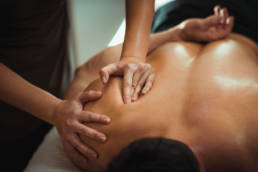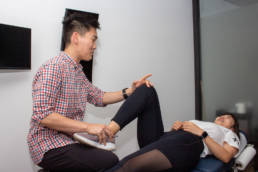Dynamic Neuromuscular Stabilization
Perth Wellness Centre is the leading provider of allied health services. We are committed to helping you improve your health and overall wellbeing!
Dynamic neuromuscular stabilization (DNS) is an advanced and new method to accurately assess and treat certain adverse conditions involving the musculoskeletal system including the muscles, joints and nerves.
This revolutionary diagnostic and treatment method is based on the premise that most degenerative conditions that impact the musculoskeletal system causing excruciating pain are based on some form of poor posture. DNS is used to correct improper stabilization of joints, faulty or incorrect movement and poor posture that is often the underlying cause of most problems involving the musculoskeletal system.
What Is Dynamic Neuromuscular Stabilization or DNS?
According to a medical dictionary, dynamic neuromuscular stabilization or DNS is defined as an integrated function of neuromuscular systems that depend on muscles to contract and focus and fixate the body against outside forces that fluctuate. This technique works by providing postural support by way of fine adjustments in targeted muscle tension in a given region.
Dynamic Neuromuscular Stabilization as defined above typically refers to functions related to the body’s muscles and nearby structures of the trunk, hip, shoulder and lower extremity core muscles when working together in a closed chain function.
DNS can be better explained by focusing on the normal function of the human nervous system that establishes programs and patterned muscle responses that will control a person’s overall posture, movement and gait. This is often referred to as “motor control,” and these programs are mostly established in a person’s first few years of life termed the critical developmental years.
How Does Dynamic Neuromuscular Stabilization Work?
DNS works by a targeted approach that emphasizes those earlier developed neurodevelopmental aspects and programs overseeing motor control with the purpose of assessing and restoring current dysfunction of the overall locomotor system and present associated issues or syndromes.
In a simplified explanation, DNS can be considered a rehabilitation approach designed to stimulate those movement control centers located in the brain to reactivate how a human body is supposed to move. This is accomplished by stabilizing normal locomotor function and restoring motor control programs learned in the first two years of life.
The actual technique of DNS focuses on learning and going through specific movements that simulates how a baby moves through neck/head stabilization, hand/eye/body developmental motions, crawling movements while maintaining proper head/neck/spine and body posture and stabilization.
In its basic form, Dynamic Neuromuscular Stabilization replicates movements babies learn to retrain the brain’s locomotor programs thereby treating the underlying causes of many musculoskeletal and neurological dysfunctions relieving pain and other symptoms.
Who DNS Is for & What Conditions/Symptoms Can DNS Help?
The goal of dynamic neuromuscular stabilization is to achieve functional stabilization before movement of arms and head. This treatment helps to stabilize the spine both when sitting and while standing.
This support and stabilization process is done naturally and automatically before different movements and while in different positions. The human body contains a complex network of various muscles and supportive body structures that must work in a balanced manner to be most effective and avoid musculoskeletal problems.
Conditions/Symptoms DNS might help include:
- Patients with chronic neurological disorders
- Aging population that feels unsteady or unbalanced
- Persons with painful back problems
- Those with muscle spasms, body weakness or frail individuals
- Those with intervertebral disc prolapse etc.
Who is a good candidate for Dynamic Neuromuscular Stabilization?
Almost everyone could benefit from precise DNS. People involved in sports can undergo DNS to achieve their maximum potential when competing and to help avoid serious injuries.
The elderly are often good candidates for DNS that can strengthen overall body and muscle strength, increase core structural stability and increase inner confidence after an accidental fall or injury.
People that must stand or sit for long hours due to work may also benefit from DNS. This could mean nurses, doctors, postal employees delivering mail, teachers, employees in food service positions, bus drivers and more.
DNS Finds Source of Pain Not Just the Location
Finding the source of the pain instead of the location of the pain dramatically improves treatment results. DNS goes deeper into the causes and then fixes them. For more information about Dynamic Neuromuscular Stabilization, contact Perth Wellness Centre Fremantle.
Related Services
Benefits of Dynamic Neuromuscular Stabilization
- Improves overall balance
- Increases and/or maintains spine stability
- Can reconnect the natural mind-body sense of awareness
- Can relieve or prevent pain and other spinal-related symptoms
- Helps supplement other fitness routines
